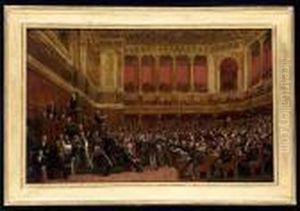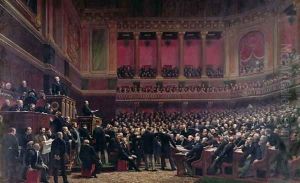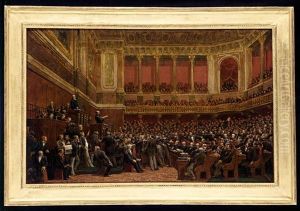Benjamin Ulmann Paintings
Benjamin Ulmann was a French painter, born in 1829 in the vibrant cultural landscape of France, a country celebrated for its rich artistic heritage. His life spanned an era marked by significant political, social, and artistic upheavals, which influenced the trajectory of his career and the development of his artistic style. Ulmann's work is often associated with the academic and historical painting traditions that were prominent during the 19th century, reflecting the academic training and influences that were prevalent among artists of his time.
Ulmann pursued his artistic education with dedication, honing his skills and absorbing the influences of his predecessors and contemporaries. He was deeply involved in the artistic circles of his time, engaging with the movements and debates that shaped the art world in 19th-century France. His works often depicted historical, biblical, and mythological themes, showcasing his ability to convey complex narratives and emotions through his paintings. Ulmann's mastery of technique, his attention to detail, and his use of color and light were characteristics that distinguished his work and contributed to his reputation as a skilled painter.
Throughout his career, Benjamin Ulmann participated in various exhibitions, gaining recognition and acclaim for his contributions to French art. His paintings were exhibited in prestigious venues, reflecting the esteem in which he was held by his contemporaries. Despite this, Ulmann's name is not as widely recognized today as some of his peers, a fate not uncommon among artists of his era, whose works may have fallen out of the mainstream art historical narrative.
Benjamin Ulmann passed away in 1884, leaving behind a legacy that, while perhaps not as celebrated as some of his contemporaries, represents a significant contribution to the 19th-century French artistic tradition. His works continue to be studied and appreciated by art historians and enthusiasts who recognize the skill, dedication, and artistic vision that characterized his career. Ulmann's life and work offer a window into the complexities and dynamics of the French art world in the 19th century, reflecting the broader cultural and historical currents of his time.












